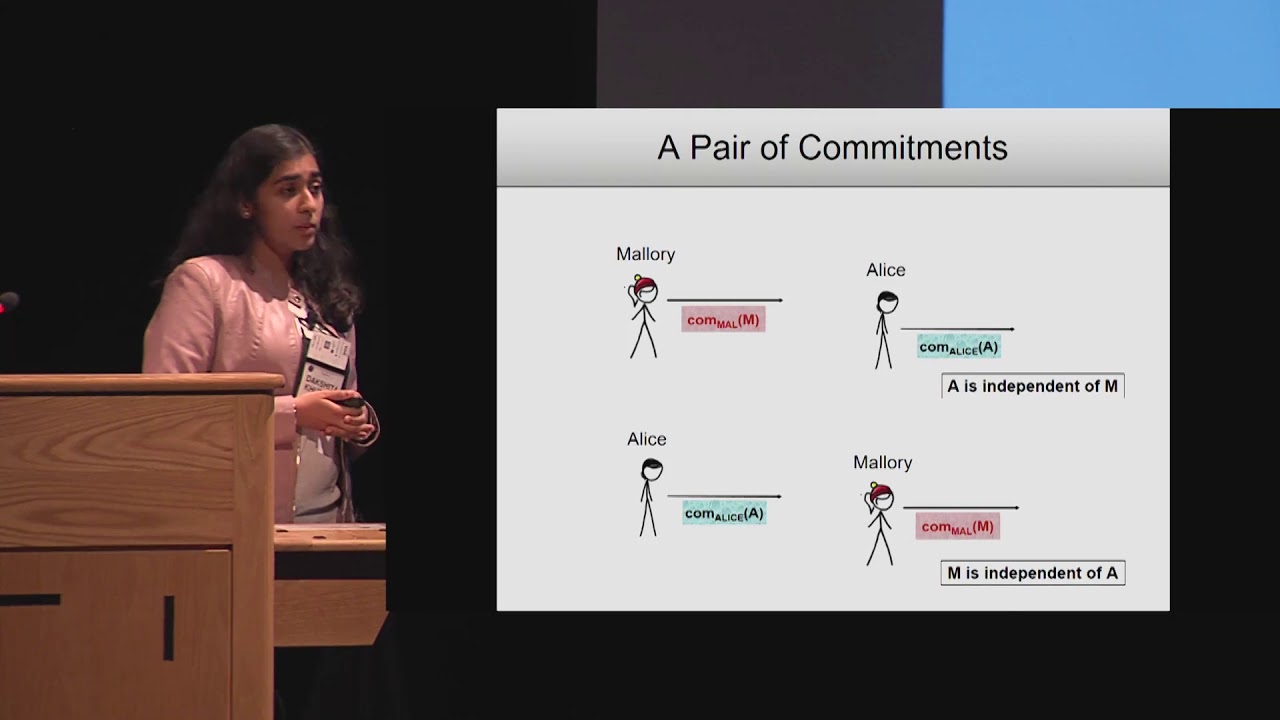Welcome to the resource topic for 2018/1118
Title:
Non-Interactive Non-Malleability from Quantum Supremacy
Authors: Yael Tauman Kalai, Dakshita Khurana
Abstract:We construct non-interactive non-malleable commitments without setup in the plain model, under well-studied assumptions. First, we construct non-interactive non-malleable commitments with respect to commitment for \epsilon \log \log n tags for a small constant \epsilon > 0, under the following assumptions: - Sub-exponential hardness of factoring or discrete log. - Quantum sub-exponential hardness of learning with errors (LWE). Second, as our key technical contribution, we introduce a new tag amplification technique. We show how to convert any non-interactive non-malleable commitment with respect to commitment for \epsilon\log \log n tags (for any constant \epsilon>0) into a non-interactive non-malleable commitment with respect to replacement for 2^n tags. This part only assumes the existence of sub-exponentially secure non-interactive witness indistinguishable (NIWI) proofs, which can be based on sub-exponential security of the decisional linear assumption. Interestingly, for the tag amplification technique, we crucially rely on the leakage lemma due to Gentry and Wichs (STOC 2011). For the construction of non-malleable commitments for \epsilon \log \log n tags, we rely on quantum supremacy. This use of quantum supremacy in classical cryptography is novel, and we believe it will have future applications. We provide one such application to two-message witness indistinguishable (WI) arguments from (quantum) polynomial hardness assumptions.
ePrint: https://eprint.iacr.org/2018/1118
Talk: https://www.youtube.com/watch?v=oZbbAivpJ0g
See all topics related to this paper.
Feel free to post resources that are related to this paper below.
Example resources include: implementations, explanation materials, talks, slides, links to previous discussions on other websites.
For more information, see the rules for Resource Topics .
